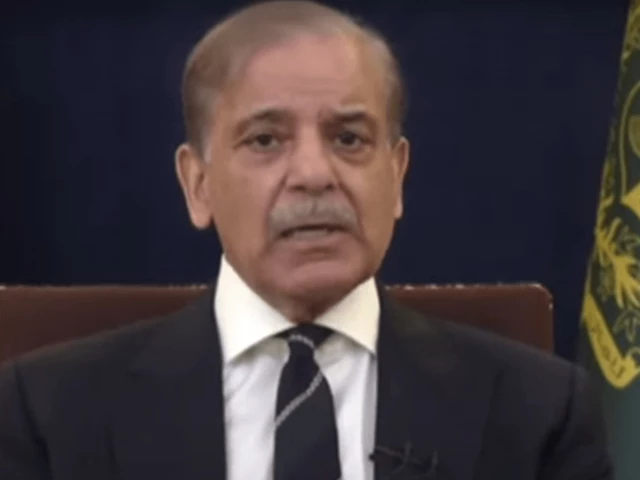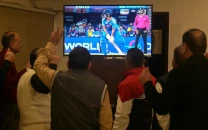PM writes to opposition to confer on new CEC
Impasse now rests at the feet of both the treasury and opposition

After months of dead air and no movement on key electoral appointments, Prime Minister Shehbaz Sharif on Wednesday extended an olive branch to National Assembly Opposition Leader Omar Ayub, inviting him for consultations on the appointment of a new Chief Election Commissioner (CEC).
In a letter, the premier stated that the term of the CEC, as well as that of two other members of the ECP, ended on January 26. However, all three have continued their duties under Article 215 of the Constitution.
He stated that, according to Article 218, proposals for the CEC and its members must be submitted to the parliamentary committee.
The letter comes as the constitutional logjam has been festering since January, as the five-year terms of CEC Sikandar Sultan Raja, Sindh Member Nisar Durrani and Balochistan Member Shah Muhammad Jatoi ended on January 26.
The process, laid out clearly in Article 213, requires a consensus between the prime minister and the opposition leader. In the event of no agreement, both sides are supposed to send separate lists of three names to a 12-member bipartisan committee, which would then pick one and send it to the president for formal appointment.
However, the process has been gathering dust. Though the seats of the CEC and two members expired in January, the government allowed the 45-day constitutional deadline for new appointments, which lapsed on March 12, to come and go without resolution.
The impasse now rests at the feet of both the treasury and opposition, with neither side making serious contact until the PM's letter.
On the other hand, the Pakistan Tehreek-e-Insaf (PTI) has already taken the government to court in March. A petition filed in the Islamabad High Court by Ayub and Senate Opposition Leader Shibli Faraz lambasts the inaction as a constitutional violation. It names the federal government, Senate chairman, National Assembly speaker and the ECP as respondents.
The petition urges the court to compel the National Assembly speaker to constitute the required parliamentary committee and calls on the Senate chairman to provide names of senators for the same.
It further asks the court to order the prime minister to hold meaningful consultations with Ayub, as required under Article 213, and to declare the continued presence of the CEC and two expired members as illegal.
Constitutional experts point to the 26th Amendment, which altered Article 215(4) to allow officeholders to continue "till successors are appointed". Both opposition and observers allege the amendment is a legislative patch over executive indecision, especially when key posts meant to guarantee fair elections remain in limbo.
Of the four members of the ECP, only the Punjab and Khyber Pakhtunkhwa representatives - Babar Hassan Bharwana and Justice (retd) Ikramullah Khan - still have valid tenures, both stretching till mid-2027.
It is worth noting that CEC Sikandar Sultan Raja's tenure has been full of political minefields.
Opposition parties, particularly the PTI, have accused him of everything from election mismanagement to open partisanship. He has been criticised for failing to ensure timely general elections and for stripping the PTI of its iconic 'bat' symbol ahead of the 2024 polls.
The ECP has also come under fire for failing to implement the Supreme Court's verdict on reserved seats and for not holding Senate elections in Khyber Pakhtunkhwa, a delay denounced by critics as undermining federal parliamentary integrity.




















COMMENTS
Comments are moderated and generally will be posted if they are on-topic and not abusive.
For more information, please see our Comments FAQ